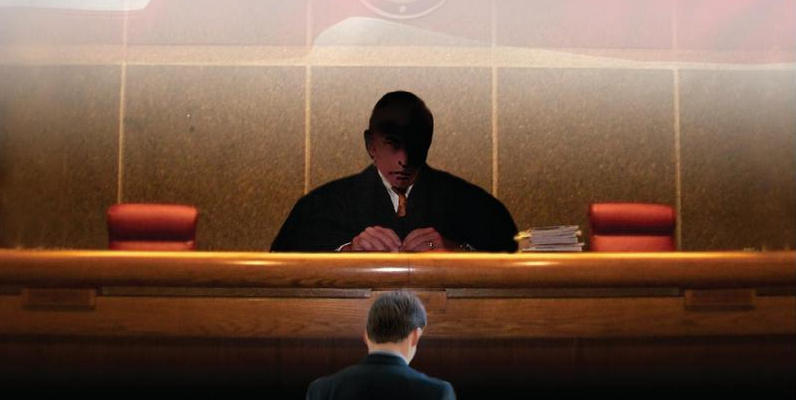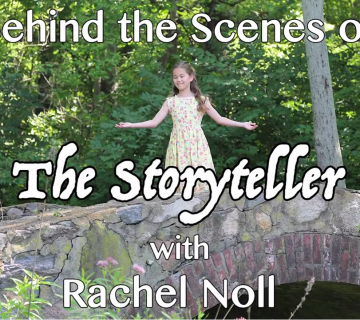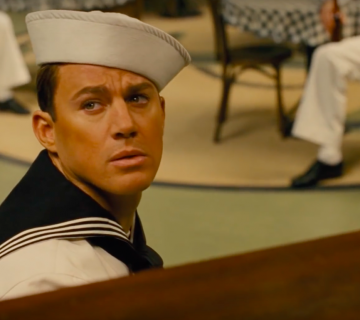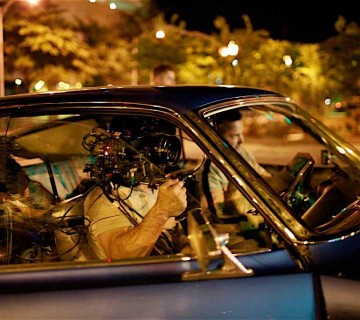The following interview was conducted for the Boulder Writers’ Workshop by Lori DeBoer. Lori is the founder of the Boulder Writers’ Workshop and works as an independent writing teacher and coach. She is a contributing editor for Short Story Writer and has had more than a thousand articles and essays published in newspapers, magazines and literary journals, including The New York Times.
Erik V. Wolter is a screenwriter, author and producer with more than twenty screenplays to his credit.
You have a background in education and taught for many years. Have you always been writing or is this a second career?
If writing a few articles for my grade school and high school newspaper counts, then I’ve been writing a very long time. Like so many writers, I was encouraged by a high school English teacher who took me aside and said I should be an English major in college. I failed to heed her advice, focused on history and political science, only to decade’s later regret it when I found myself scrambling to hone those fundamental skills other writers take for granted. My interest in political and social issues did serve to prompt me to write frequent letters to the editor on controversial issues, causing me to parse every word out of fear that it might actually appear in the paper or evoke the wrath of someone’s rebuttal that would allow them to get the last word. Today, as a result, I’m not one to write quickly in a stream of consciousness style. I tend to dissect every scene and strive to get it as close to my version of perfection before moving on with the story, typically not recommended, especially if you can’t handle sleep deprivation.
But to answer your second question, I began writing Loyalty on Trial in 2001 and it was published in 2004. Before I left teaching in 2011, I was fortunate to be hired to write two screenplays on assignment for a production company, wrote five original scripts, and acquired an agent. It’s only since then I could really claim a second career was launched. Being able to devote full time to writing had everything to do with five collaborations with other writers, an assignment to adapt a novel in development with another LA production company, six more spec scripts, and the Y/A novelization of my screenplay, Break the Stage now in the final stages of filming in Orlando, Florida.
“Get a life, Erik!” Feel free to say it out loud. I have heard that very comment in my own home and not from my two dogs. Seriously though, here’s the subtext for any writer frustrated with trying to find the time to write in the context of family, job, and still have a “life.” I play tennis, ski, and work out. I also have dinner with my wife nightly where we share out thoughts and discuss… you name it. When I was teaching, I made time to write by treating it as a part-time job that required a commitment of a certain number of hours daily. The fact that I couldn’t wait to get to that second job made it the best moonlighting experience ever. I’d bet that any fellow-writer reading this has had more formal training in writing than I have, and can run circles around me when it comes to pounding out pages on the keyboard. Therefore, you know what comes next. If I can do it…
Has your teaching informed your writing in any way?
What made this journey possible was the fact that I was a veteran teacher when it all began. I knew how to organize my time, had the work ethic to stay at it late into the night, and sacrifice summers and other holidays for time to write. And retiring in 2011 clearly gave me an opportunity to establish a second career, and unlike a younger person trying to break into this writing biz, I didn’t have the pressure to make a living solely off of my writing.
You’ve written in many genres—novels, screenplays, nonfiction. How have you come to be involved in so many different types of writing?
Most of the screenwriting gurus advise against writing for multiple genres because agents and managers claim they prefer to market a writer who has a track record of success in one genre. Develop the skills required in that one genre and you will acquire a following and be more marketable, they claim. That may work for some, but I wanted to experiment in as many genres and mediums as I could when I started out. And I couldn’t buy into the idea that I had to focus on one when in fact my interests and experiences were diverse. But I do agree that if you discover that you are really successful in one genre, it makes sense to focus most of your attention there.
Which genre excites you the most or do you like them all?
Other than horror, I like them all. Liking straight comedy though isn’t enough. Apparently, writing comedy works best if you are actually funny. I have had more success in drama than any other genre, but I still get tempted to take a chance and test myself in something new if I have a story in mind.
Tell us about Loyalty on Trial: One American’s Battle with the FBI, which is based on your father’s experience. Could you talk about the book and how that project came to be?
My odyssey from AP Government and Politics teacher to full-time writer began in the summer of 2001. I flew to Chicago to help my sister move my mother out of the house where our family lived since 1945. My mother, a German immigrant, who celebrated her 99th birthday in March, was moving to Las Vegas to be closer to my sister. Dad, also born in Germany, died in 1994. Mom asked me to bring down a sealed box from a shelf in her closet. She said, “Dad would have wanted you to have this.” What the box disclosed became the catalyst for Loyalty on Trial: One American’s Battle with the FBI.
My father was that American. He chose to keep his experience with the FBI sealed in that box for nearly sixty years. The box revealed that he was charged with disloyalty and subsequently denaturalized after a high-profile trial in 1942, but on appeal to the Supreme Court the decision was overturned based on First Amendment rights of speech and association. In the box, I found a 700 page trial transcript, newspaper clippings, and a scrapbook of columns he wrote for a German language newspaper in the 1930’s.
After staying up the entire night and digesting it all, my sister said, “You should write a book about this.” My response was something like, “Yeah sure, me… write a book.” But after returning home to Florida, I was intrigued. How did this ever happen? And from what I read, it was obvious that there had been thousands of other German Americans and German nationals interned in camps across the country and many deported. As an American History major and U.S. Government teacher, I had to wonder how this slipped through the cracks. Here was an untold story from WWII that demonstrated how patriotic fervor can lead to paranoia, intolerance, and repression when government seeks expedient means to achieve an alleged “greater good,” only not to be found in any high school textbook.
How did the research and writing of that book unfold?
I filed a Freedom of Information request with the Federal Government, and two weeks later a box was at my doorstep when I came home. The 1,000 pages of FBI files, including, confidential informants, illegal “mail covers” and letters about my father signed by J. Edgar Hoover was enough to convince me that a book should be written, at least by someone. About that time, the horrific attack on 9/11 happened. The parallels of how German Americans and Americans of Middle-Eastern descent were treated based on societal hysteria and unjustified profiling by the government were striking. So I took the plunge into documenting my Dad’s story.
What was the biggest challenge in writing and publishing the book?
After months of pursuing university press publishers, only to receive praise for the work but polite rejections due to not having a PHD, I took the self-publishing road. By 2004 I was an author of a book that was positively reviewed in history circles and by First Amendment advocates, including the president of the ACLU. Without the resources of a traditional publisher, and despite my own efforts, marketing the book never amounted to much. But then I heard, and not just from my sister, “This would make a great movie.”
How did you move from that book into being involved in screenwriting?
While still teaching, I immersed myself into studying screenwriting. There was no shortage of material online, including how-to books, consultants, script analysts, and sample screenplays. But my early attempts to transform my book to a screenplay produced a script that frankly was quite awful. And that was a good thing because as you know, writing is rewriting and that is doubly true for screenplays. Ultimately, the fictional version of my book made the Finals in 2012 of the Page Awards. During that time, I gained experience as I wrote more scripts about that with which I was most familiar, teenagers and history. Coverage and contest results continued to be more positive than negative. One thing I learned along the way, making stuff up (or should I say creating), even if it is drawn from actual events, real people, or your own experience is much more enjoyable than writing nonfiction, at least for me. I tried my hand in other genres just to see if I could and discovered that only horror and straight comedy weren’t my cup of tea.
Was it difficult writing about something historical that had personal ties?
Despite having personal ties to the story, my training and experience as a teacher told me the best approach was to document the story from the perspective of the government acting in wartime versus an immigrant torn between his devotion to his new country and his attachment to the ongoing turmoil taking place in the country of his birth. Balancing those elements within the broader context of civil liberties guaranteed by the U.S. Constitution would be my challenge. According to the Midwest Book Review, I was reasonably successful, “Loyalty On Trial relies so heavily on primary sources and the transcript of the trial itself that it does not pretend to read like a novel; instead, it offers the straight facts to the reader, leaving him or her to judge Wolter’s loyalty and the dubious American policy that almost certainly forced unjust imprisonment and deportation upon thousands of innocent German-Americans.”
How many screenplays have you written and what has been your experience in pitching them and getting them produced?
To date, my resume lists twenty-two screenplays. Five of those were collaborative efforts with other screenwriters, and another five were writer for hire assignments. Pitching the remaining original specs was time consuming and a never-ending process. Having an agent is a foot in the door when it comes to queries and credibility, but promoting your own work is a given. The film industry provides numerous opportunities to pitch one’s work online and in person via pitch fests in LA. I have had good results online from Ink Tip and Virtual Pitch Fest. Coverage services like the Black List and the Tracking Board are sources to get your work noticed, and screenplay contests, although extremely competitive, have been known to launch careers for those who make the finals.
Getting produced is the goal, but the reality is it is a long shot. Actually, it is more like a buzzer beater three-quarter-court desperation shot when your team, the lowest seed in the tournament after a Cinderella-run, is down by three in the national championship. You not only make it to tie the game, you get fouled and head to the free-throw line while the rabid home crowd of the undefeated #1 team in the country does everything possible to make you miss. All alone on the line, because the clock has run out, you clank it but somehow it bounces three times on the rim and finally rolls through. You now get to take the place of Christian Laettner as the most hated college basketball player. On the other hand, one of my former students, Jamie Linden, wrote We Are Marshall, and it was his first. Diablo Cody’s, Juno was not only her first but won an Oscar for original screenplay. Hope springs eternal on the court and for those pounding on the keyboard into the wee hours of the night on that last rewrite.
… check back for Part II of this interview with Erik V. Wolter!









Join the Conversation →